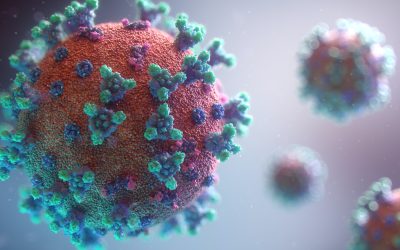What is Long Covid?
Long Covid, also known as long-haul covid or post-acute COVID syndrome (PACS), is being increasingly discussed in the media as cases persist in the United Kingdom. Both the NHS and the CDC identify it as COVID-19 symptoms that continue for longer than 4-12 weeks after initial infection, with some patient’s having reported symptoms for 2 years ¹.
What are the symptoms?
The most commonly reported symptoms of long COVID are fatigue (with similarities to ME/CFS), shortness of breath, cognitive disruption and cardiovascular abnormalities ². Everyone who catches COVID is vulnerable to developing long COVID and recent research at the World Health Organisation (WHO) has shown that 10-20% of patients will develop “prolonged symptoms” that could be long COVID.
How much do we know?
There is still a large amount of ambiguity surrounding the causes of long-covid and the potential impact that it might have on future generations. Research is ongoing and changing weekly, some recent scientific papers on long COVID have found:
- there is a reduction in odds of contracting long COVID if you caught the omicron variant compared to the delta variant (0.24:0.50) ³
- the prevalence of long COVID is 25.24% in children and adolescents, rising to 29.19% if they have been hospitalized ⁴
- there is a reduction in grey matter thickness and global brain size after a COVID-19 infection in older generations aged 51-81, which has the potential to contribute to dementia later in life ⁵



What actually causes long COVID?
There are some theories circling about the underlying causes of long COVID. One prominent hypothesis is that “lingering virus and viral antigens” continue to provoke immune responses. A circulating inactive virus can still cause the inflammation of blood vessels and cause micro-clots. These micro-clots can deprive muscles of oxygen and lead to the common symptoms of pain and fatigue ⁶. Another study found that a weaker or delayed antibody response was associated with the occurrence of long-COVID which could be aided by boosters or monoclonal antibody treatment ⁷. However, these ideas remain as hypotheses.
What do we do next?
The details around long COVID remain elusive to scientists. However, each individual’s immune system has reacted to COVID infections and vaccinations differently. This is certain not least because of the variety of vaccine and booster combinations that people have received. As a result, discovering your own antibody levels can indicate whether you might be at risk of long-covid or require a booster.
If you want to know how your own immune system has responded to the events of the pandemic, try the Attomarker COVID-19 Antibody Immunity Test. We provide results that may indicate past infections and can quantify your vaccine response to both the original variant and the omicron variant.
Follow the buttons below if you wish to book a test or find out more information.
References:
- Huang L, Li X, Gu X, et al. Health outcomes in people 2 years after surviving hospitalisation with COVID-19: a longitudinal cohort study. The Lancet Respiratory Medicine 2022, 10(9), pp.863-876.
- Crook H, Raza S, Nowell J, Young M, Edison P. Long covid-mechanisms, risk factors, and management. BMJ 2021;374:n1648.
- Antonelli M, Pujol J, Spector T, Ourselin S, Steves C. Risk of long COVID associated with delta versus omicron variants of SARS-CoV-2. The Lancet 2022, 399(10343), pp.2263-2264.
- Lopez-Leon S, Wegman-Ostrosky T, Ayuzo del Valle N, et al. Long-COVID in children and adolescents: a systematic review and meta-analyses. Scientific Reports 2022, 12(1).
- Douaud G, Lee S, Alfaro-Almagro F, et al. SARS-CoV-2 is associated with changes in brain structure in UK Biobank. Nature 2022, 604(7907), pp.697-707.
- Shaffer L. Lots of long COVID treatment leads, but few are proven. Proceedings of the National Academy of Sciences 2022; 119(36).
- García-Abellán J, Padilla S, Fernández-González M. Antibody Response to SARS-CoV-2 is Associated with Long-term Clinical Outcome in Patients with COVID-19: a Longitudinal Study. Journal of Clinical Immunology 2021, 41(7), pp.1490-1501.





